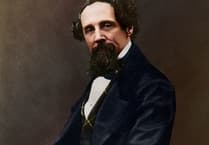On December 20, 1955, Cardiff was recognised as the capital of Wales in a written reply by the Home Secretary, Gwilym Lloyd George. Caernarfon had competed for the title.
In 1924, the South Wales Daily News had organised a poll to establish which town should be the capital of Wales and only 76 out of 161 local authorities had voted for Cardiff.
As a result, the city embarked on a campaign to promote its “Welshness”, but it only took until 1950 before the subject of a Welsh capital was debated again with Caernarfon and Aberystwyth emerging as the competitors for the title.
The stalemate between the three cities was not broken until Cardiganshire county Council decided to support Cardiff, and in a new local authority vote 134 out of 161 voted for Cardiff.
Cardiff celebrated two iprotantj anniversaries in 2005 as it had been a hundred years since Edward VIII had granted Cardiff city status on October 28, 1905.
Although the city hosted the Commonwealth Games in 1958, Cardiff only became a centre of national administration with the establishment of the Welsh Office in 1964.
In the 1990s the Cardiff Bay Development Corporation was promoting the redevelopment of south Cardiff: an evaluation of the regeneration of Cardiff Bay in 2004 concluded that the project had ‘reinforced the competitive position of Cardiff’.
In 1997 Welsh Devolution referendum, 55/4 per cent of Cardiff voters rejected the establishment of the National Assembly for Wales, which encouraged other local authorities to bid to house the assembly.
But, eventually the assembly was located in Cardiff Bay in 1990 and in 2005 a new debating chamber, designed by Richard Rogers, was added on an adjacent site. The presence of the Welsh Assembly and government have firmly established Cardiff as the capital of Wales.
The Linton and District History Society meets on the first Thursday of each month, except in January, at 7pm to begin at 7:30pm, in Linton Village Hall.
On Wednesday, February 7, Fiona Morrison will be speaking about ‘L’Appel: Charles de Gaulle and the crisis of 1940’.




Comments
This article has no comments yet. Be the first to leave a comment.